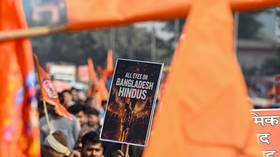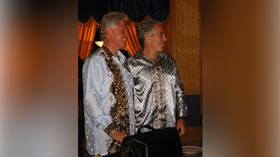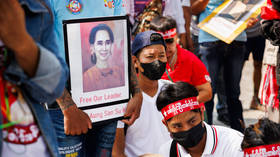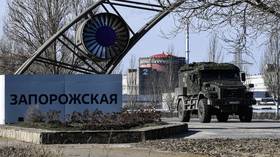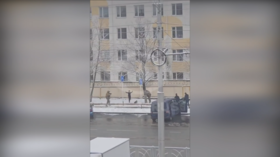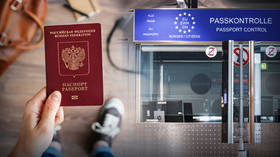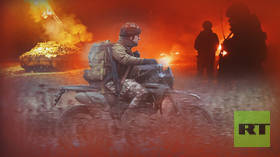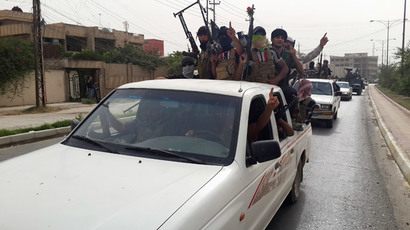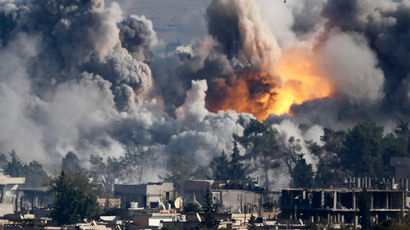ISIS claims to have developed dirty bomb – reports
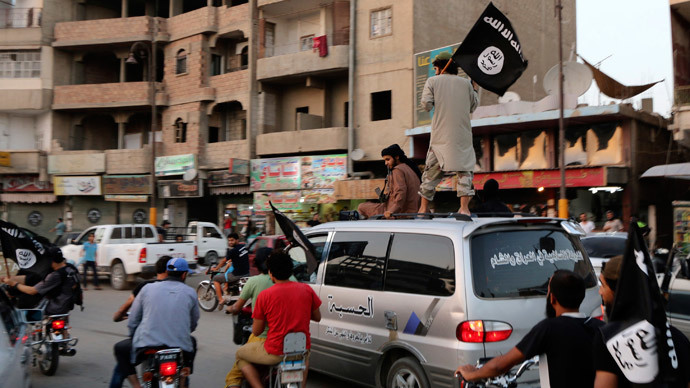
So-called Islamic State militants claim to have developed a crude nuclear weapon using materials seized from Mosul University, Iraq. A British extremist boasted of the damage the dirty bomb would do if detonated in Iraq, UK media reports.
One of the militants bragging about the device online was Hamayun Tariq, fighting under the nom de guerre of Muslim-al-Britani, the Daily Mirror reports. Britani, a Briton who claims to be a bomb expert, tweeted:
"O by the way, Islamic State does have a dirty bomb. We found some radioactive material from Mosul University."
READ MORE: Ex-Taliban British bomb expert joins ISIS
He continued: “We’ll find out what dirty bombs are and what they do. We’ll also discuss what might happen if one actually went off in a public area.”
IS has confirmed that we have acquired a dirty bomb from radioactive material from Mosul Uni! Mashallah #ISpic.twitter.com/PI2ctDMBrQ
— Shahada For Allah (@MaitreVee) November 25, 2014
In another somewhat confused message he said a dirty bomb “would be terribly destructive if it went off In LONDON becuz [sic] it would be more of a disruptive than a destructive weapon.”
Another militant replied that such an attack would likely ramp us Western involvement, adding “Allah knows best.”
READ MORE: Islamists plan Christmas attacks on 5 planes in major European hubs – report
Reports that the Islamic State (IS, formerly ISIS) had stolen uranium compounds from Mosul University first came out over the summer. Writing to UN Secretary-General Ban Ki-moon on July 8, Iraqi UN Ambassador Mohamed Ali Alhakim said that 88 pounds of uranium used for scientific research at Mosul University had been looted.
Two days later, a spokesperson for the UN International Atomic Energy Agency (IAEA) said the material was “low grade” and “would not present a significant safety, security or nuclear proliferation risk."
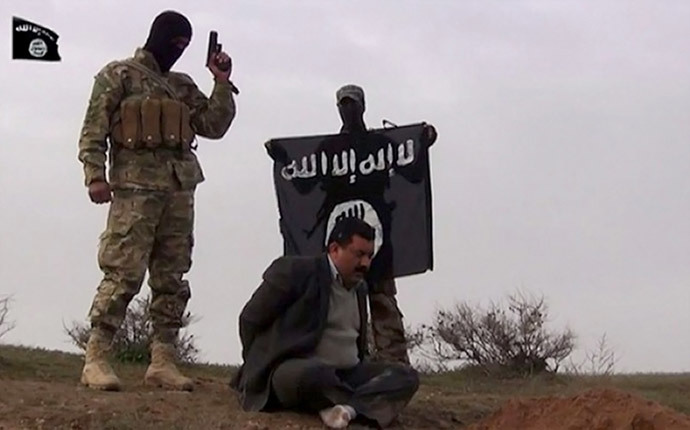
A dirty bomb is a mix of explosives, such as dynamite, with radioactive powder or pellets. When the dynamite or other explosives are set off, the blast carries radioactive material into the surrounding area.
According to the Centers for Disease Control and Protection (CDC), the radioactive materials used in a dirty bomb “would probably not create enough radiation exposure to cause immediate serious illness, except to those people who are very close to the blast site.”
They noted, however, that “the radioactive dust and smoke spread farther away could be dangerous to health if it is inhaled.”
Due to the difficulty of transporting any such material, if the militants actually attempt to construct a dirty bomb, they would likely attempt to detonate it in Iraq or Syria.
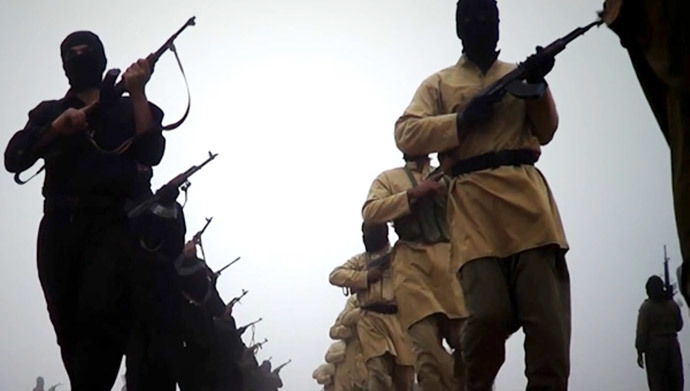
On Monday a high-ranking UK security source told the Sunday Express that an “alive and real” Muslim terrorist bomb plot was in the works for the holiday season.
"We've been told that five planes are being targeted in a high profile hit before Christmas,” the source told the paper. “They've been waiting for the big one.”




